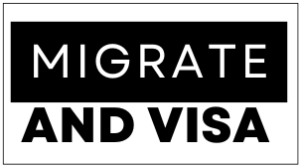Finding the right country and embarking on a journey to study abroad for a master’s degree is an exciting prospect for many Nigerian students. It is one most Nigerians look forward to.
Particularly the ones who had experienced ASUU strikes during their undergraduate program, they will clinch this opportunity with both palms. It opens doors to new opportunities, expands horizons, and provides invaluable academic and cultural experiences.
However, choosing what to study and the right country for your master’s degree can be too much of a task. There are countless options available worldwide.
Which of the countries is the best fit for your academic and personal goals?
It is the above question excited Nigerians find the hardest to surmount in their studying abroad adventure.
This article has all the answers. It answers the above question and the others that stand in the way to study abroad for a master’s degree.
We will explore the key factors Nigerian students should consider when deciding where to study abroad for their master’s degree.
Academic Reputation and Quality of Education
This is one of the most crucial factors to consider when choosing a country for your master’s degree. You should be in the lookout for an institution with academic reputation and quality of education.
The internet is one place you can go to get these pieces of information. Research universities and academic institutions in your desired country offering masters program in your chosen field of study.
You should be on the look-out for the following: their rankings, accreditation, faculty expertise, and program offerings in your field of study.
Look for universities with a strong reputation for academic excellence and innovative research. You should also have an eye for universities with industry connections relevant to your career aspirations.
Also Read: Top 10 Immigration Rules for International Students in the United States
Program Availability and Specializations
Not all universities offer degrees in you field of study. So, you have to conduct an elaborate research into the universities in the country of your desire. Evaluate the availability of master’s degree programs and specializations in your chosen field of study.
There are three areas that universities in your target country have to align with. They are: your academic interests, career goals, and desired areas of specialization.
Consider factors such as program curriculum, faculty expertise, research opportunities, and internship placements. Your choice should be what will enhance your learning experience and professional development.
Language of Instruction and Language Proficiency
Language of instruction is a technical term that refers to the language lessons will be taught in. It is something you should research one.
There are a number of universities in Europe whose language of instruction is not English. This can be a problem for a Nigerian student who for all their schooling English was the language of instruction.
Assess the language of instruction in your desired country. The language of instruction can be anything from English to French to Polish to German, etc. Determine whether you meet the language proficiency requirements for admission to master’s degree programs.
Many countries offer programs taught in English, which may be advantageous for Nigerian students fluent in English.
However, some countries may require proficiency in a second language, such as French, German, or Spanish, depending on the location and language policies of universities.
Do your due diligence to find out the language of instruction in your desired country. You don’t want to gain admission only to find out the language of instruction is not one you are familiar with.
Cost of Living and Tuition Fees
Evaluate the cost of living and tuition fees in your prospective study abroad destination. You have to conduct this research. It will help you streamline your search to what aligns with your budget and financial resources.
Consider factors such as accommodation, transportation, food, healthcare, and other living expenses associated with student life abroad.
Research scholarship opportunities, financial aid options, and part-time work opportunities available to international students. You don’t want to discover all these are available and you cannot access it.
Whatever can aid you to make money or cut off expenses, you should be aware of it.
Also Read: 10 Best Courses that Can Get You a Job in the United States Faster
Visa Requirements and Immigration Policies
Understand the visa requirements and immigration policies of your target country for international students pursuing master’s degrees. Every country has different policies when it comes to these.
Research the visa application process, documentation requirements, visa processing times, and any restrictions or conditions associated with student visas.
Ensure that you meet the eligibility criteria and comply with immigration regulations to obtain the necessary visa and residence permits for studying abroad legally.
Cultural Diversity and Student Support Services
Consider the cultural diversity and student support services available in your prospective study abroad destination. Evaluate the cultural climate, social integration, and diversity of the student population.
This will help you to assess your comfort level and sense of belonging in the host country.
Research student support services, international student offices, academic advising, counseling services, and extracurricular activities. This will enhance your academic experience and cultural immersion abroad.
Career Opportunities and Post-Graduate Employment
Assess the career opportunities and post-graduate employment prospects available to international students in your chosen country.
Research the job market, industry trends, internship opportunities, and networking resources relevant to your field of study and career aspirations.
Consider factors such as work permits, job placement assistance, alumni networks, and employer partnerships.
The university you will finally settle for should be what will facilitate your transition from student to professional in the host country.
Also Read: Why Previous Visa Rejections Can Affect Future Visa Application: Key Things You Should Know
Conclusion
Choosing the right country to study abroad for your master’s degree as a Nigerian student requires careful consideration. These factors should be your consideration: academic, financial, cultural, and career-related factors.
Conduct thorough research, evaluate your priorities, and seek guidance from academic advisors and international education professionals. This will enable you to make an informed decision that aligns with your academic and personal goals.
You can choose to pursue your master’s degree in the United States, United Kingdom, Canada, Australia, or another destination. The experience of studying abroad will undoubtedly enrich your life and broaden your horizons in profound ways.











